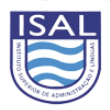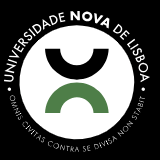Introduction
NOVA University Lisbon is located in Lisbon, the capital of Portugal. It is one of the newer and most influential public universities in Portugal. It is known for its innovative education model and high-quality teaching and research, and enjoys a high international reputation in the fields of economics and business.
Overview
The school is large in scale, with more than 20,000 students, of which about 20% are international students from 110 countries, forming a multicultural environment. There are 1,420 teachers, more than 47% of whom have doctoral degrees. It offers 40 undergraduate courses, 87 postgraduate courses and a variety of doctoral courses covering a wide range of disciplines.
History and Establishment
Founded in 1973, it was built to meet the growing demand for higher education in Portugal, especially Lisbon. Since 1977, it has begun to expand its teaching and research fields and gradually become a comprehensive university.
School Strength
Faculty: The teachers are of high quality, more than 47% have doctoral degrees, with a high degree of internationalization. 29% are foreign professors who can provide students with high-quality teaching and cutting-edge guidance.
Teaching Facilities: Complete supporting facilities, including libraries, sports centers, medical centers, psychological counseling centers, etc., to meet students' learning and living needs.
Scientific Research Achievements: Strong scientific research strength, responsible for about 10% of Portugal's national research papers indexed by Web of Science. Since the launch of the European Research Council funding program in 2009, researchers have won 10 funded by the Portuguese government, and has achieved important results in many fields.
Nature of the institution
A public university, funded and managed by the Portuguese government, is committed to providing high-quality educational services, inheriting culture and promoting academic progress.
Educational philosophy
Focus on cultivating students' innovative spirit and practical ability, emphasizing interdisciplinary integration and international vision, attracting, cultivating and developing outstanding talents through various projects and plans, such as Supernova Basic Courses and Nova Young Talent Awards, to promote the comprehensive development of students and social progress.
Key laboratories and disciplines
Key disciplines: Economics, finance, management and other disciplines are strong, such as Nova School of Business and Economics is one of the world's top business schools, and its Master of Finance and Master of Management are ranked high. Traditional disciplines such as medicine, science, and humanities also have advantages.
Key laboratories: There are 42 R&D units, 15 of which are research cooperation projects with other national institutions, and 75% of the R&D units have been rated "excellent", "excellent" or "very good" by the Portuguese Science and Technology Foundation.
Faculty
It is divided into 9 academic units, including the School of Science and Technology, the School of Social Sciences and Humanities, the School of Economics and Management, the School of Medicine, the School of Law, the School of Information Management, the School of Chemical Biotechnology, the School of Tropical Health and Medicine, and the School of Public Health.
Ranking
Ranked 369th in the QS World University Rankings and 501-600th in the Times World University Rankings 2025. Its School of Economics and Business ranks in the top 30 in the European Business School Rankings.
Expenses
The annual tuition fee for undergraduate courses is about 6,000-10,000 euros, and the annual tuition fee for master's courses is about 7,000-13,000 euros, depending on the major.
Campus Environment
The main campus is located in Campolide and Almada in Lisbon. Caparica, as well as other small facilities in the Lisbon area, the campus environment is beautiful and quiet, the surrounding cultural facilities are rich, and the city has a profound historical and cultural heritage, providing students with a good learning and living environment.
-

Vasco da Gama University School
-

Higher Institute of Administration and Languages
-

Polytechnic Institute of Maia
-

Higher School of Nursing, Lisboa
-

Superior Institute of Maia
-

Atlântica University
-

Higher Institute of Education and Science Portugal
-

Polytechnic Institute of Leiria
-

NOVA University Lisbon
-

University of Minho
-

Mesoamerican University
-

Istmo University
-

Mariano Galvez University of Guatemala
-

Regional University of Guatemala
-

Galileo University
-

Francisco Marroquín University
-

Rafael Landívar University
-

University of the Valley of Guatemala
-

University of San Carlos of Guatemala
-

Technological Institute of Tlaxcala Plateau
-

Golfo University
-

Technological University of South Sonora
-

Technological University of Huejotzingo
-

Tizimín Institute of Technology
-

Chilpancingo Institute of Technology
